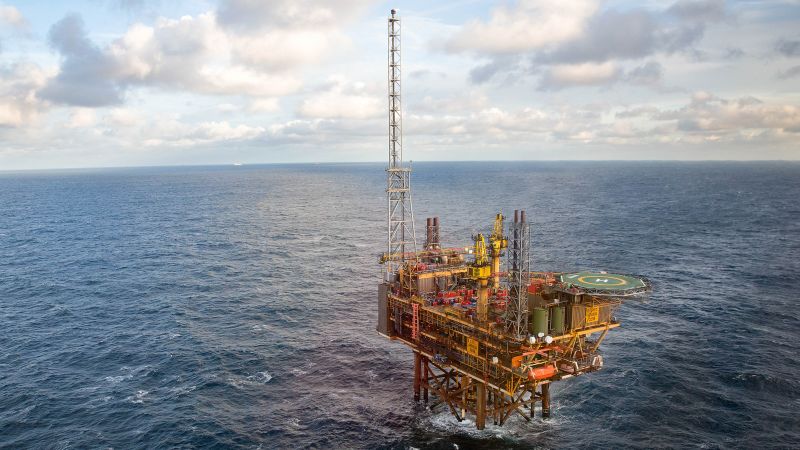Facing risk of blackouts this winter, the UK will drill for more oil | CNN Business

London
CNN Business
—
The UK government could award oil and gas companies more than 100 new licenses to drill in the North Sea, as it looks for ways to bolster energy security amid a global supply crunch.
Launched Friday, the licensing round won’t lead to new UK production for several years. And when drilling does begin, Britain will still be dependent on energy imports, according to the government, leaving it vulnerable to soaring prices and supply disruptions of the kind that threaten blackouts this winter.
UK utilities company National Grid
(NGG) warned Thursday that households and businesses could be left without power for up to three hours at a time in a worst-case scenario of very cold weather, low levels of wind, gas shortages and an inability to import electricity from Europe. It said it would take steps to mitigate the risk, including bringing old coal-fired power stations back online if necessary.
Starting November 1, National Grid will also offer financial incentives to customers to reduce power consumption at peak times.
Kathryn Porter, an energy consultant at Watt-Logic, told CNN Business that National Grid was still underestimating the risks to supply, but that blackouts for households were unlikely because it could disconnect large energy users at peak times if necessary.
The latest licensing round won’t improve the immediate supply picture and could face a legal challenge from environmental activists. Greenpeace said that new oil and gas licenses were “potentially unlawful” and that it would be looking for ways to act.
“New oil and gas licenses won’t lower energy bills for struggling families this winter or any winter soon nor provide energy security in the medium term,” Philip Evans, energy transition campaigner for Greenpeace UK, said in a statement.
“New licenses — and more importantly more fossil fuels — solve neither of those problems but will make the climate crisis even worse,” he added.
Analysis by the North Sea Transition Authority (NSTA), the regulator that grants licenses, shows the average time between discovery of oil and gas deposits and first production is close to five years, though that lag is “falling.”
In a statement on Friday, the NSTA said it will prioritize areas in the southern North Sea that can be developed quickly and where gas has already been discovered. Companies have until January 12 to apply for licenses, with permits expected to be issued as soon as the second quarter of 2023.
The NSTA said the licensing round has been subject to a “climate compatibility check” to ensure it aligns with the UK government’s commitment to reach net zero carbon emissions by 2050. It added that producing gas domestically has a much lower carbon footprint than importing it from abroad.
The International Energy Agency said last year that investment in new fossil fuel supply projects, including drilling for oil and gas, must stop immediately if the world is to limit global warming to 1.5 degrees Celsius above preindustrial levels.
The UK government set out plans earlier this year to generate 95% of Britain’s electricity from low carbon sources by 2030. The plan, which allows drilling for oil and gas, will also ramp up nuclear power and wind energy.
For all the latest world News Click Here

